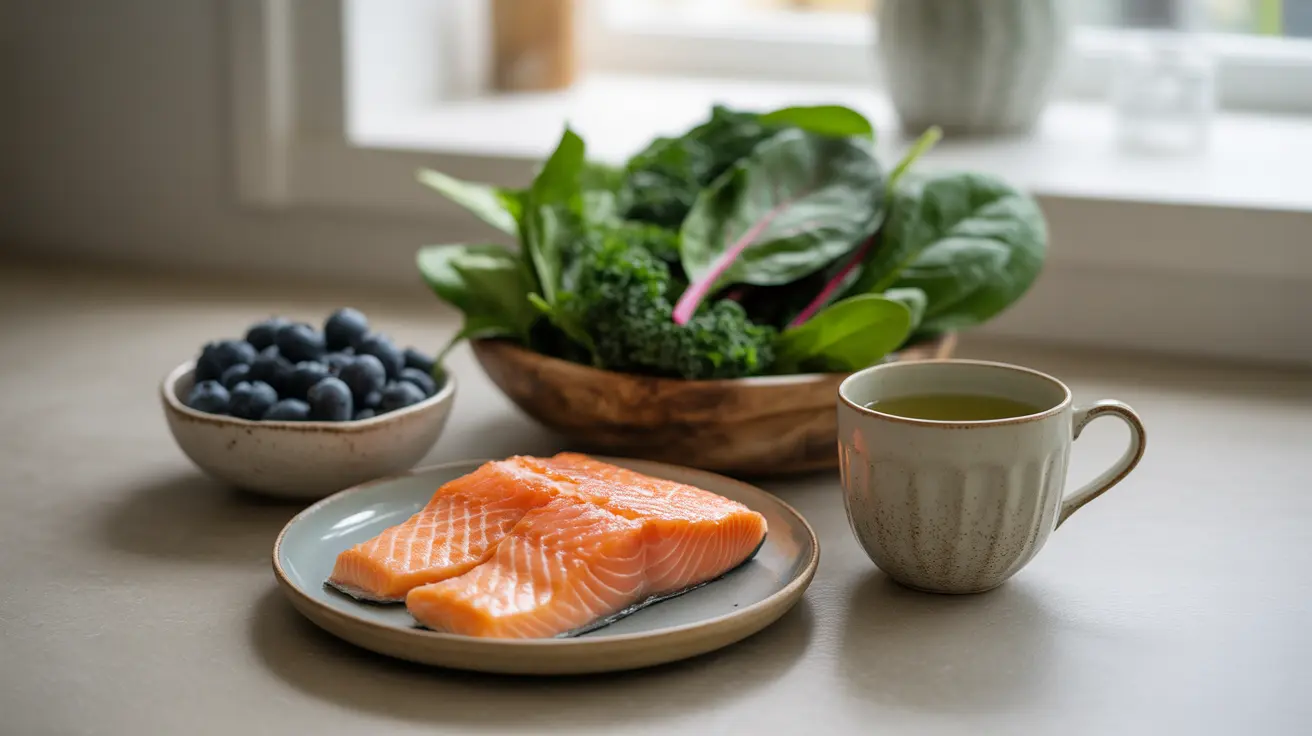The connection between diet and acne has become increasingly clear through scientific research. While no single food can cure acne completely, certain dietary choices can significantly impact skin health and help reduce breakouts. Understanding which foods help with acne can be a powerful tool in your skincare arsenal.
This comprehensive guide explores the most effective foods for fighting acne and explains how specific nutrients work to promote clearer, healthier skin.
Anti-Inflammatory Foods for Clearer Skin
Inflammation plays a crucial role in acne development, and certain foods can help combat this underlying issue:
- Fatty fish (salmon, mackerel, sardines)
- Leafy greens (spinach, kale, collard greens)
- Berries (blueberries, strawberries, raspberries)
- Green tea
- Turmeric
These foods are rich in antioxidants and omega-3 fatty acids, which help reduce inflammation throughout the body, including the skin.
Zinc-Rich Foods for Skin Health
Zinc is a mineral that helps regulate oil production and supports skin healing. Include these zinc-rich foods in your diet:
- Pumpkin seeds
- Oysters
- Lean beef
- Lentils
- Hemp seeds
Probiotic Foods for Gut-Skin Balance
A healthy gut microbiome can significantly impact skin health. Focus on these probiotic-rich foods:
- Plain yogurt
- Kefir
- Kimchi
- Sauerkraut
- Kombucha
Vitamin A and C Powerhouses
These vitamins are essential for skin health and natural collagen production:
- Sweet potatoes
- Carrots
- Bell peppers
- Citrus fruits
- Papaya
Foods to Minimize for Acne Prevention
While focusing on beneficial foods, it's important to reduce intake of:
- Sugary beverages
- Processed snacks
- White bread and refined grains
- Dairy products (especially skim milk)
- Fast food
Frequently Asked Questions
What foods are proven to help reduce or prevent acne breakouts?
Foods rich in omega-3 fatty acids (like salmon), zinc (such as pumpkin seeds), and antioxidants (like berries) have been scientifically proven to help reduce acne breakouts. Additionally, foods high in vitamins A and C support skin health and can help prevent breakouts.
How do omega-3 fatty acids and zinc-rich foods improve acne-prone skin?
Omega-3 fatty acids help reduce inflammation in the body, which can decrease acne severity. Zinc helps regulate oil production, reduces inflammation, and supports skin healing processes. Together, these nutrients create an environment that's less conducive to acne formation.
Which high glycemic foods should I avoid if I want to prevent acne flare-ups?
To prevent acne flare-ups, avoid foods with a high glycemic index such as white bread, sugary drinks, processed snacks, and white rice. These foods can spike blood sugar levels, leading to increased inflammation and oil production in the skin.
Can eating more fruits and vegetables really make a difference in controlling acne?
Yes, increasing fruit and vegetable intake can significantly impact acne control. These foods are rich in antioxidants, vitamins, and minerals that support skin health. Specifically, fruits and vegetables containing vitamins A and C help reduce inflammation and promote skin healing.
How do probiotics and gut health influence acne severity and skin inflammation?
Probiotics and gut health play a crucial role in managing acne by reducing systemic inflammation and supporting immune function. A healthy gut microbiome helps regulate hormones and inflammatory responses that can affect skin health. Consuming probiotic-rich foods can help maintain this beneficial gut-skin connection.




